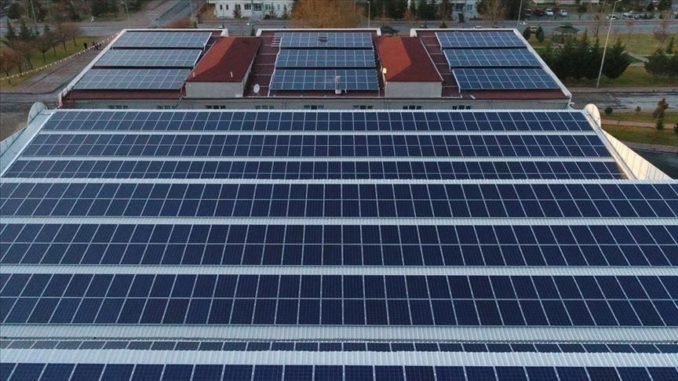
Turkey will add around 1,000 megawatts (MW) of solar energy capacity in the near term, according to Turkey’s Energy and Natural Resource Minister.
Taking into account the potential of each city, Turkey will make between 40 and 50 MW capacity solar energy investments, which, similar to the Renewable Energy Resources Zone Areas Projects (YEKA), will be considered through tenders and contain purchase guarantees, Fatih Donmez said.
“Through these investments, we will have solar power of around one thousand megawatts in capacity,” Donmez said.
By creating a zone from the east of the country to the west to maximize solar exposure, Turkey aims to benefit from uninterrupted generation.
Renewables support
The Turkish Renewable Energy Resources Support Mechanism (YEKDEM), which started in 2011, supported solar energy plants at a cost of $0.133 per kilowatt-hour, and wind and hydroelectricity plants at $0.73 per kilowatt-hour.
However, the government plans to end this renewable incentive scheme by 2020, and according to Donmez, the introduction of lower capacity solar plants dispersed throughout the country will be introduced, further details of which will be furnished later in the year.
In October 2018, due to challenges in the financing of large-scale YEKA projects, the energy ministry announced the opening of tenders up to 50 MW instead of the previously offered YEKA tenders up to a total of 1,000 MW.
Donmez acknowledged the considerable progress made in the development of renewable energy resources in Turkey over the past 15 years, and said the energy ministry is currently working on this alternative renewables scheme for post 2020 when the YEKDEM ends.
“We can observe that some renewable technologies are becoming competitive with conventional energy production facilities. Therefore, the support may not be needed for some types of [renewable energy] resources and technologies. However, for some renewables sources, the technology has not reached its maturity level yet. Costs have not reached the desired levels. It [support for renewables] can continue for a certain time under certain conditions,” he said.
“In this context, of course, legal changes may also be needed,” Donmez said and added “we will clarify all of these [issues] this year and share it with our investors and citizens.”
In 2013, Turkey’s renewable electricity share was 29 percent while the share of installed clean energy capacity was around 40 percent.
In 2017, through the energy ministry’s YEKA tenders, Turkey held a solar tender with a capacity of 1,000 MW with a winning bid price per megawatt-hour of $6.99. An equivalent capacity wind tender was achieved at $3.49 per megawatt-hour also in 2017.
After hitting 31 percent of renewable electricity production in August 2018, Turkey’s authorities took concrete investment steps to revise its renewable target for 2023.
Turkey aims to supply 65 percent of energy needs from domestic and renewable sources in 2023, according to the ministry.
BY ANADOLU AGENCY
